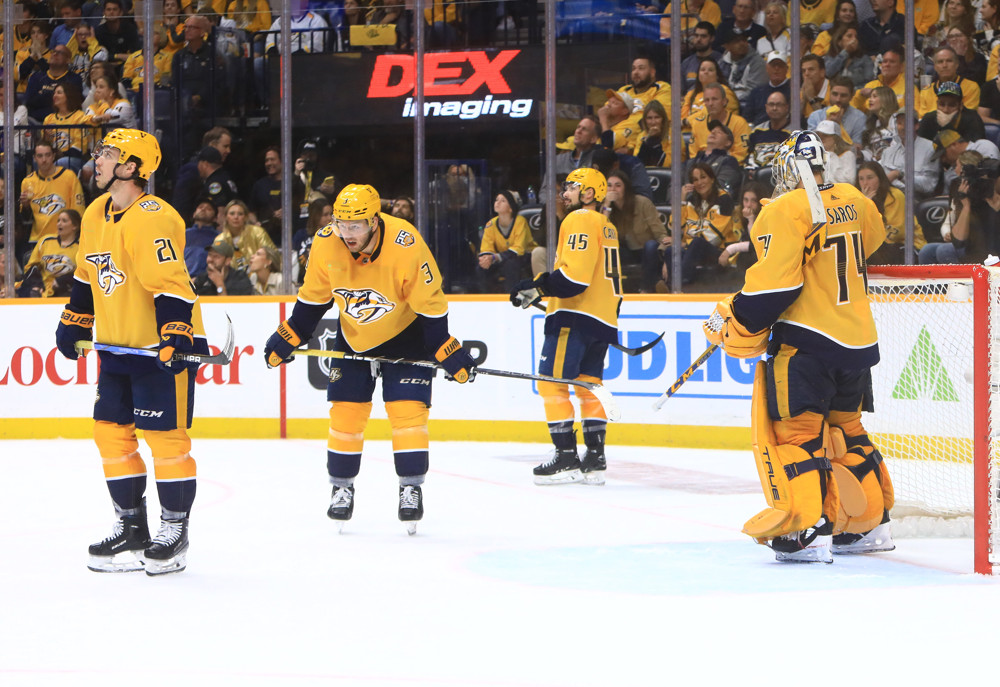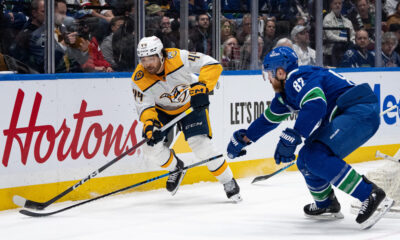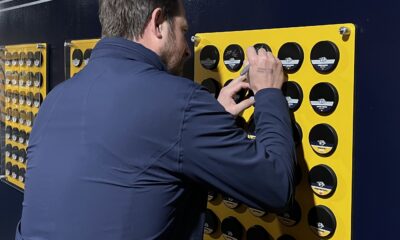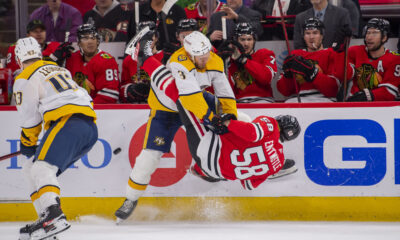The Nashville Predators found themselves in the middle of the pack about halfway through this past season. Then, the team went on an epic late-season heater and earned a wildcard spot for the playoffs. However, they were eliminated in the first round in six games by a division champion and heavy favorite in the series.
I know what you’re thinking; “hey wait, isn’t the same thing we’ve been doing for like five years now? Isn’t that the exact scenario Barry Trotz and Andrew Brunette vowed to help the Predators avoid? Aren’t we still in that ‘mushy middle’ of sucking too much to contend but don’t suck enough to rebuild?”
And yet, this year’s Predators team felt different. And maybe that’s why this year’s playoff exit stung a little harder than in years past.
So many aspects of this season felt like a tremendous, and often times unexpected, success. Imagine predicting in September that THIS Predators roster would end the season as one of the NHL’s best teams, owning the best post-All Star break record in the conference. Imagine predicting that this roster, who lost nearly 100 combined goals from their 2022 roster in a span of six months, would tie the franchise record for goals in a season. Imagine predicting that Ryan O’Reilly and Gustav Nyquist would combine to form Nashville’s best statistical scoring line EVER, or that Ryan McDonagh would turn back to clock to record his best season in over a half decade.
We frequently got looks at the type of team fans have been starved to see for years. The Predators proved to be an exciting team capable of handling their own against the NHL’s best. They finished 10th in the NHL in scoring, ahead of teams like Boston, Florida, Vegas, and Winnipeg. They finished 5th in 5v5 expected goals, 6th in expected goals percentage, and 6th in high-danger chances created, all metrics that the analytics crowd tend to point to as a sign of a “good” team.
Even in their series loss, the Predators showed flashes of being a dominant team. This wasn’t the bloodbath we saw against Colorado in 2022 or against the Hurricanes in 2021. The Preds outshot the Canucks 148-121 over the course of the series. They finished with more high-danger chances and expected goals. The Predators looked like the better team for a significant part of the series; ironically, their two worst games were arguably the two they won.
Vancouver winning the series felt like a giant missed opportunity for the Predators, namely because the jury’s still out on whether this particular team can be this good again.
As many feel-good stories surrounded the team this season, questions remain about the Preds’ roster moving forward. The team’s two skating centerpieces, Roman Josi and Filip Forsberg, will be 34 and 30 respectively at the start of next season. Nyquist and McDonagh will be 35, and O’Reilly just turned 33. Given the latter three have battled through injuries and regression in the years preceding their current successful seasons, is it wise to expect this core to carry the bulk of the minutes for the next three to four seasons?
Then there’s the question of the next generation of Nashville Predators. Trotz’s arrival seemed to indicate a strategy of getting younger, weening up-and-coming prospects into more prominent roles on the team. In reality, the Predators went a bit backwards. Phil Tomasino and Juuso Parssinen, each big factors in the Preds’ miracle late-season run in 2023, were sent to Milwaukee after struggles with consistency, while Cody Glass was barely used after the trade deadline. The lone bright spots were Luke Evangelista, who improved as the season progressed and finished with a decent 39 points in his official rookie season, and Spencer Stastney, who the Predators opted to put on the blue line for the playoffs over veterans Tyson Barrie and Dante Fabbro.
This wound up creating a scenario in which the Predators leaned on their veteran presence to guide them through the first season of the Trotz-Brunette era. This year, that strategy worked. But the Predators are quickly reaching the point in which the team needs to hand the reigns over to a younger core. Eventually, Trotz and Brunette are going to have to either place more trust on the younger players in the system or, if they can’t, become more aggressive in finding younger players to build around.
Then there’s the question of goaltending. Juuse Saros has one more year left on a ridiculous team-friendly $5 million AAV contract. The Predators also have Yaroslav Askarov, considered by most pundits to be one of the three best goalie prospects in hockey, waiting in the wings. It’s a situation that leaves Trotz between a rock and a hard place. Does he ride Saros for another year, potentially as a mentor for Askarov, before letting him hit the market for free? Does he try to work on an extension with Saros, potentially blocking a path for Askarov to earn a full-time role? Or does he look to trade his franchise goaltender this summer, potentially bringing back valuable young assets while also potentially risking Askarov not being ready for a full-time 1A NHL role?
As much as there was to celebrate about this year’s team, it’s clear more changes are needed to get the Predators over the first round hump and into the promiseland of contendership, and it seems as if those changes might be around the corner. But maybe that makes this season a little easier to celebrate. In a season that began with zero expectations, this year’s team gave us an exciting brand of hockey that fans actually took joy in watching, something fans have been hard-pressed to find since 2018, and for the first time in a while — dare I say it — optimism about the direction of the franchise?












